Home » LFA 2026 Election: Controversy, Candidates, and the Future of Liberian Football

LFA 2026 Election: Controversy, Candidates, and the Future of Liberian Football
LFA 2026 Election. Following the arrest of football stakeholder J. Melton Yoko, Cassell Anthony Kuoh’s 2026 LFA presidential campaign has generated notable debate. Raising concerns about governance in Liberian football, this event took place during a high-stakes game between Liberia and Tunisia.
Once considered a possible turning point for the sport in Liberia, Kuoh’s candidacy is now under severe investigation. Critics have used his past, including a fraud conviction in the United States, as proof of dubious leadership. Many doubt Kuoh’s campaign’s honesty; therefore, Yoko’s arrest has just stoked the flames.
Still, this debate has tainted the political and football scene in Liberia. The future of Kuoh’s presidential aspirations is uncertain as fans and stakeholders call for responsibility.
Controversy on the Field: Arrest of J. Melton Yoko and Vandalism at LFA Headquarters
Melton Yoko’s arrest at a high-stakes football game has generated much anger and called into doubt the integrity of his leadership. Yoko was held under ambiguous conditions during the Liberia vs. Tunisia game, which was when the event took place. This incident has sparked claims of power abuse inside the football federation.
LFA 2026 Election: Incident Breakdown and Abuse of Power Accusations
Witnesses said Yoko’s detention was sudden and unclear. Critics say the deed was politically driven, meant to stifle opposition. The timing of this during a vital game has further increased doubts.
Protesters convened outside the LFA offices, calling for responsibility. The conflict intensified and caused damage to the structure. Many view this as a direct reaction to the alleged abuse of power.
Coalition Against Fraud’s Strong Reactions
The Coalition Against Fraud has criticized the arrest and the following occurrences. Their statement urged an impartial inquiry into the subject. They underlined that such behavior erodes confidence in football administration.
Now being pushed are football stakeholders to act and handle the developing issue. The debate has fostered an environment of suspicion, endangering the future of the sport in Liberia.
Cassell Anthony Kuoh: The Accused Leader Facing Questions on Integrity
As the 2026 LFA presidential race develops, leadership examination gets more severe. Past legal problems of the candidate, including a fraud conviction in the United States, have taken center stage in discussion. His past causes major doubts regarding his fitness to guide Liberian football.
Critics contend that such a past erodes the confidence needed for good administration. Those involved in football as well as outside have expressed doubt. They doubt whether someone with this history can lead honestly and openly.
These discoveries have a major strategic influence. Many see the candidate as unsuited for the position, so campaign credibility has suffered. Given the great degree of responsibility and ethical behavior required in leadership positions, this doubt is justified.
One cannot overestimate the need for fact-based decision-making. Leaders have to inspire confidence by their deeds and past. Trust fades and credibility decreases when past deeds conflict with these values.
Below is a breakdown of the key concerns raised by stakeholders:
Concern | Impact |
Past Fraud Conviction | Undermines trust and ethical leadership |
Lack of Transparency | Raises questions about accountability |
Stakeholder Skepticism | Threatens campaign credibility |
These problems significantly influence the image of the candidate. Leadership is built on trust; without it, even the most driven efforts struggle. These worries will probably still be front and center in talks as the election draws near.
Protocol Breaches and Political Turmoil in Liberian Football
Recent occurrences in Liberian football have shown long-standing political unrest and protocol violations. These events have undermined stakeholder confidence and upset conventional administrative systems. The consequences have been serious, with government blunders endangering the survival of the sport in the nation.
Impact on Stakeholders and Football Governance
Particular violations are the mishandling of important issues and the lack of transparency in decision-making. These actions have upset the conventional system of football management. The system is losing confidence among stakeholders, including sponsors and supporters.
The increasing skepticism among football groups shows the wider effect of this upheaval. Failures in governance have fostered a climate devoid of responsibility. This has compelled participants to examine more closely the political dynamics inside the LFA.
The story of responsibility has also been affected by outside forces, including American judicial precedents. These instances draw attention to the need for ethical leadership and transparent government. They remind one of the world criteria Liberian football has to aim to reach.
From a business point of view, these governance shortcomings have far-reaching consequences. Sponsors and investors are hesitant to engage with a system plagued by instability. For the industry to expand and survive, it is absolutely vital to handle these problems.
- Specific protocol breaches have disrupted traditional structures.
- Stakeholder trust has been severely eroded.
- External influences highlight the need for accountability.
- Business implications threaten the sector’s growth.
Charting a Path Forward: Strengthening Integrity in Liberian Football
Restoring confidence in Liberian football depends on stakeholders giving transparency and responsibility first priority. Eliminating power abuses and avoiding fraud calls for strategic changes. Establishing more transparent procedures will help to guarantee equitable government and avoid next conflicts.
Practical measures include establishing autonomous monitoring agencies to track decision-making procedures and elections. Stakeholders have to embrace changes as well that fit strong business principles since they will help the sport to be sustainable over time.
It’s critical to reject authoritarian tendencies. The football community has to cooperate to restore faith and integrity in the administration. Taking these practical actions will help Liberian football to progress toward a more responsible, better future.
